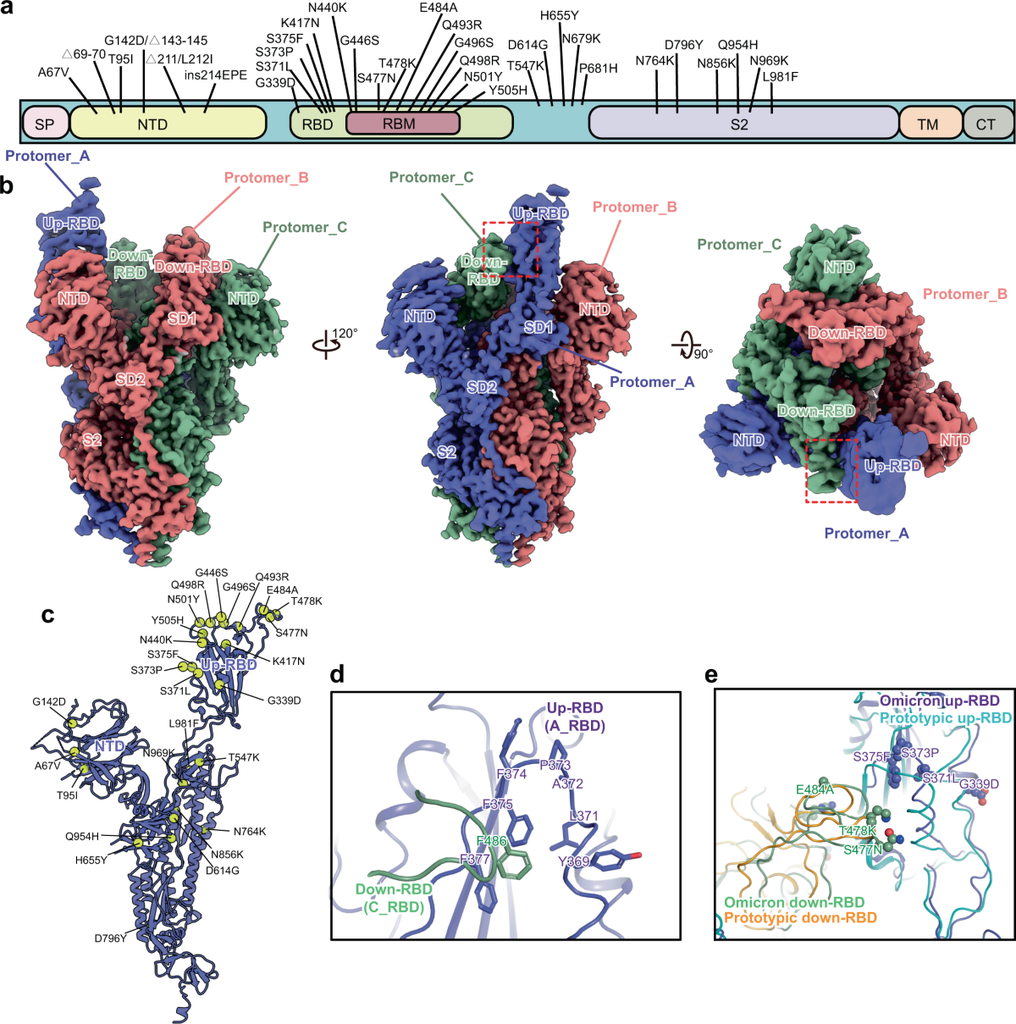SARS-COV-2 KP.2 (Omicron) Spike RBD Protein (His Tag) (HPLC-verified), 100 µg
Catalog No :
CAS Number :
Brand :
In Stock
Specifications:
| Application | Protein Biology | ||
| Storage Temperature | –80°C | ||
| Product Type | Recombinant Protein | Forms | lyophilized powder |
| Product Brand | Sino Biologicals | ||
| Product Grade | Molecular Biology | ||
Coronavirus spike Background Information
The spike (S) glycoprotein of coronaviruses contains protrusions that will only bind to certain receptors on the host cell. Known receptors bind S1 are ACE2, angiotensin-converting enzyme 2; DPP4, dipeptidyl peptidase-4; APN, aminopeptidase N; CEACAM, carcinoembryonic antigen-related cell adhesion molecule 1; Sia, sialic acid; O-ac Sia, O-acetylated sialic acid. The spike is essential for both host specificity and viral infectivity. The term 'peplomer' is typically used to refer to a grouping of heterologous proteins on the virus surface that function together. The spike (S) glycoprotein of coronaviruses is known to be essential in the binding of the virus to the host cell at the advent of the infection process. It's been reported that SARS-CoV-2 (COVID-19 coronavirus, 2019-nCoV) can infect the human respiratory epithelial cells through interaction with the human ACE2 receptor. The spike protein is a large type I transmembrane protein containing two subunits, S1 and S2. S1 mainly contains a receptor binding domain (RBD), which is responsible for recognizing the cell surface receptor. S2 contains basic elements needed for the membrane fusion. The S protein plays key parts in the induction of neutralizing-antibody and T-cell responses, as well as protective immunity. The main functions for the Spike protein are summarized as: Mediate receptor binding and membrane fusion; Defines the range of the hosts and specificity of the virus; Main component to bind with the neutralizing antibody; Key target for vaccine design; Can be transmitted between different hosts through gene recombination or mutation of the receptor binding domain (RBD), leading to a higher mortality rate.
- Purity: ≥ 95 % as determined by SDS-PAGE.
- ≥ 95 % as determined by SEC-HPLC.
- Endotoxin: < 1.0 EU per μg protein as determined by the LAL method.
Activity
Immobilized Recombinant Human ACE2 / Angiotensin-Converting Enzyme 2 Protein (Fc Tag) (Cat: 10108-H05H) at 2 μg/mL (100 μL/well) can bind Recombinant SARS-COV-2 KP.2 (Omicron) Spike RBD Protein (His Tag) (Cat: 40592-V08H156) , the EC50 is 8-25 ng/mL.
Protein Construction
A DNA sequence encoding the SARS-CoV-2 (KP.2) Spike RBD (YP_009724390.1, with mutation I332V, G339H, R346T, K356T, S371F, S373P, S375F, T376A, R403K, D405N, R408S, K417N, N440K, V445H, G446S, N450D, L452W, L455S, F456L, N460K, S477N, T478K, N481K, V483del, E484K, F486P, Q498R, N501Y, Y505H) (Arg319-lys529) was expressed with a polyhistidine tag at the C-terminus. The mutations were identified in the SARS-CoV-2 variant (known as variant KP.2).
Expressed Host: HEK293 Cells
Species: SARS-CoV-2
Predicted N Terminal: Arg 319
Molecule Mass
The recombinant SARS-CoV-2 Spike RBD consists of 221 amino acids and predicts a molecular mass of 25.25 kDa. As a result of glycosylation, it migrates as an approximately 38.5 kDa band in SDS-PAGE under reducing conditions.
Formulation: Lyophilized from sterile PBS, pH 7.4.
Normally 5 % - 8 % trehalose, mannitol and 0.01% Tween80 are added as protectants before lyophilization.
Please refer to the specific buffer information in the hardcopy of datasheet.
Shipping: In general, recombinant proteins are provided as lyophilized powder which are shipped at ambient temperature.
Stability & Storage: Samples are stable for up to twelve months from date of receipt at -20℃ to -80℃. Store it under sterile conditions at -20℃ to -80℃. It is recommended that the protein be aliquoted for optimal storage. Avoid repeated freeze-thaw cycles.
Reconstitution: A hardcopy of datasheet with reconstitution instructions is sent along with the products. Please refer to it for detailed information.




 0
0
